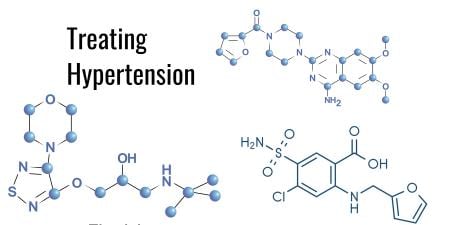Recently, the Office of Inspector General (OIG) at the US Department of Health and Human Services issued new guidance on voluntary compliance programs for pharmaceutical manufacturers in reducing fraud and abuse and promoting cost-effective, quality health care.1 In part, the OIG guidance was a response to recent high profile violators of federal anti-kickback statues2 such as TAP Pharmaceuticals. In many respects, this increased government scrutiny and oversight is reflective of how highly the public values a well-functioning relationship between medicine and the drug industry.
In this heated debate about medicine's relationship with industry, there are some who argue that there should limited, if any, interactions between physicians and the drug industry because of potential undue influence and conflicts of interest. There are others who believe that there should be little, if any, regulation on industry dealings with the medical profession because pharmaceutical companies are responding to consumer demand, and physicians can be trusted to use professional judgment in prescribing for patients. Both of these positions, in my judgment, are oversimplified views of reality and ultimately do not benefit patients.
Drug companies and medical device manufacturers invest tens of billions of dollars annually to develop new therapies for many debilitating diseases that affect millions of people. Many of these treatments are expensive, however, and those who need them most often cannot afford them. Moreover, industry decisions on clinical research priorities can be significantly influenced by the potential market for a given treatment. Treatments for so-called "orphan" diseases and common diseases that affect millions in developing countries are often neglected.
The pharmaceutical industry also spends billions of dollars each year to fund continuing medical education (CME) programs for physicians. Supporters of industry-sponsored CME contend that without the financial commitment from industry some physicians would not be educated about the latest clinical treatments and procedures. Critics of industry-supported CME programs argue they are simply a means for marketing products to physicians and can lead to over prescribing of costly, and not necessarily more effective, treatments.
As you can imagine, these are only a few examples of the many challenges to a well-functioning relationship between medicine and industry necessary for the ultimate good of patients and society. In this issue of Virtual Mentor, we explore the many issues that individual physicians and the medical profession must consider in their interactions with the drug industry.
The learning objectives of this issue are:
- Understand medicine's role in defining research priorities for the public good and the profession's responsibility to inform industry of those priorities.
- Understand how gifts and financial support from the drug industry pose ethical challenges to physicians in their roles as clinicians, researchers, and educators.
- Understand the joint efforts made by the medical profession and industry to educate their members about guidelines for interactions.
- Understand the goal of guidelines for gifts to physicians from industry: to minimize physician conflicts of interest while allowing industry representatives to educate physicians about new products.
- Learn guidelines for managing conflicts of interest between physicians and industry that could compromise or appear to compromise medical judgment.
References
-
HHS Office of Inspector General. Compliance program guidance for pharmaceutical manufacturers. April 2003. Accessed June 25, 2003.
-
42 USC. 1320a-7B(b).



